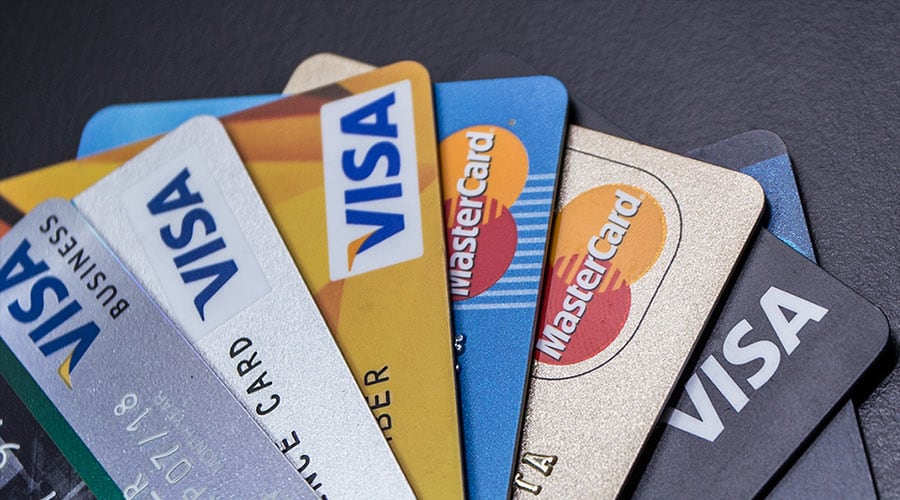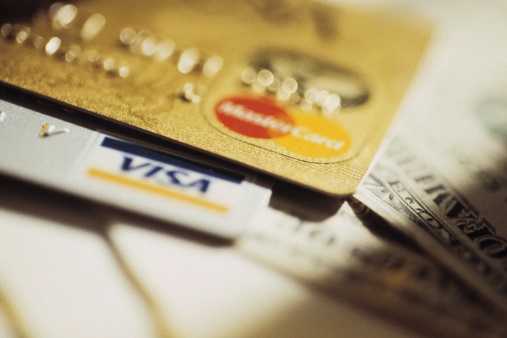Scura, Wigfield, Heyer, Stevens & Cammarota Blog
- Blog
Unsecured vs. Secured Credit Cards: What is the Difference?
You got your credit report in, and it is not looking too great for your score. Due to a myriad of unfulfilled financial commitments, your credit score is too low to take out new loans. For now, you can watch your dreams of moving out of your apartment and into a house drift off the harbor and into the sea. You need to find a way to raise your score, but you cannot take out new loans and you are being denied credit cards left and right. It feels as if your bad credit score has anchored you under the sea. You sink into dark depths, your last spark of hope drowned out.
Then, the light: secured credit cards.
If you need to raise your credit score, but you are denied credit cards due to low credit, you might want to consider getting a secured credit card to elevate your credit score. This might be daunting. What makes one sort of credit card “secured” while another one is unsecured? Is there a trick that might undermine your financial stability? Should you be worried?
Unsecured and Secured credit cards are similar in that both allow you to buy items on credit, both require you to pay back past dues, and, by consistently paying off credit on your card, your Credit Score can be elevated. However, the difference between unsecured and secured credit cards ultimately amount to one word: collateral. If you do not pay your credit off, creditors will find a way to get their money from you – one way or another.
Unsecured Credit Cards

Unsecured credit cards are the standard variety of credit cards that most people receive when they apply for a credit card. When you purchase material, the debts due for that material are placed onto your credit card. You regularly pay off the credit due with your money. By paying off credit, you are rewarded on your credit score when credit card companies report your good credit to the credit bureaus.
You are given a credit limit on how much can be put on this line of credit. If you do not pay off your credit in a timely manner, interest is accrued. By failing to pay off your credit or by exceeding your credit limit, your failure to pay your dues is also reported to the credit bureau.
The reason you need a good credit score to gain an unsecured credit card is because creditors want to receive their due payment. If you are notoriously unreliable paying off your debts, creditors are less likely to give you a chance to pay them via credit. You need to prove to them you can handle the responsibility of an unsecured credit card.
Credit Card Collateral

When getting a secured credit card, you are required to put down a collateral investment into the card. The amount you put into your secured credit is the total credit limit of your card. This collateral will serve as an investment. If you fail to pay off your secured credit card, you risk losing your primary investment on the card.
Secured credit cards, much like unsecured credit cards, report any credit made with the card to major credit report bureaus. Because of this, secured credit cards are a great way of elevating your credit score if you are having trouble receiving loans otherwise.
Once you gain enough credit, however, you can upgrade your credit card to an unsecured credit card. The initial security deposit placed on the card is then returned to you, all as a result of the credit no longer requiring a deposit. Your good credit report speaks to your ability to pay back credit.
Credit scores can sometimes be lowered thanks to the bankruptcy process. However, if you have any fears or anxieties pertaining to your credit and finances, you might want to consider bankruptcy as a potential means to eliminate debt off your record. That is where we come in. The attorneys at Scura, Wigfield, Heyer, Stevens & Cammarota LLP can help. Please call our offices to schedule a free consultation and hear your options.
Share Article
Need Help? Contact Us Today!





Lists by Topic
- Bankruptcy (320)
- Personal Injury (95)
- Chapter 13 (52)
- Chapter 7 (50)
- Debt Management (50)
- Foreclosure (47)
- Accident (32)
- Car Accident (26)
- Chapter 11 (24)
- Business Bankruptcy (19)
- Credit (18)
- Insurance Claims (17)
- Business Law (12)
- Litigation (12)
- Employment Law (11)
- Probate and Estate Law (11)
- Damages (10)
- Medical (10)
- Product Liability (10)
- Workers Compensation (10)
- Attorney (9)
- Consumer Bankruptcy (9)
- Commercial & Residential Real Estate (6)
- Slip and Fall (6)
- Contracts (5)
- Premises Liability (5)
- Repossession (5)
- wrongful death (5)
- Video | Bankruptcy (4)
- Bankruptcy Cost (3)
- Corporate Litigation (3)
- Trial Law (2)
- student loans (2)
- tax (2)
- Attorney Fees (1)
- COVID-19 (1)
- Certified Civil Trial (1)
- Dog Bites (1)
- News (1)
- Relocation Assistance (1)

